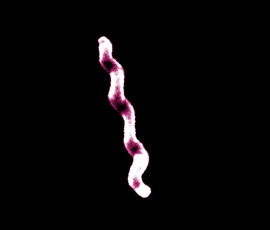BBC probe claims campylobacter on the rise

A BBC investigation has claimed the incidence of campylobacter infection is increasing, prompting the Food Standards Agency (FSA) to call on the poultry industry to “take responsibility” for its reduction.
The investigation, broadcast on BBC Radio 4’s Face the Facts programme on Wednesday (16 January), said that campylobacter was the UK’s most common cause of food poisoning, accounting for 90% of all hospital admissions due to food-borne diseases.
It also said that infections were increasing, with 500,000 people a year now infected, and that 60 – 80% of these infections could be attributed to poultrymeat.
Broadcaster John Waite, who presented the programme, spoke to scientists, sufferers and industry figures about campylobacter.
During the show, he also visited a Vion broiler farm and spoke to British Poultry Council chief executive Peter Bradnock.
Mr Bradnock said there was potential risk from all foodstuffs, and none were completely sterile. He also said the industry was committed to, and already working on, reducing campylobacter in poultry.
“The industry needs to take responsibility to sort this problem out. There is work going on, but I have flagged up concerns about the pace of progress.”
Catherine Brown, FSA
“The producers and the processors realise that we have a responsibility to reduce to the absolute minimum any possible risk that could be passed on to the consumer, so that when they buy food, it’s the safest it can be.
“We can do something about this, and we are doing something about it,” he added.
Catherine Brown, chief executive of the FSA told the show the human and economic cost of campylobacter was unacceptable.
She also said the industry would have to be prepared to bear the costs of reducing campylobacter in poultry.
“The industry needs to take responsibility to sort this problem out. There is work going on, but I have flagged up concerns about the pace of progress.”
FSA figures suggest that 27% of birds in the UK are in the highest category of contamination. It has set a target to reduce this to 10% by 2015. It is hoped that this would lead to fewer than 100,000 cases of campylobacter poisoning a year.
Poultry producers urged to tackle campylobacter
